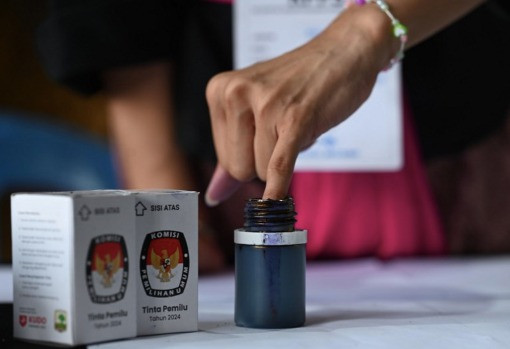Ministry, WWF to cooperate to save sharks
The Maritime Affairs and Fisheries Ministry is working together with the World Wide Fund for Nature (WWF) to save the dwindling population of sharks
Change Size

T
he Maritime Affairs and Fisheries Ministry is working together with the World Wide Fund for Nature (WWF) to save the dwindling population of sharks.
'Statistics show that there is an increased number of sharks being killed in Indonesia. We cannot let this continue,' said the ministry's director general for maritime, coastal and small islands affairs, Sudirman Saad, at the Coral Triangle ceremony on Loang Baloq beach in Ampenan, Mataram, in West Nusa Tenggara (NTB) on Sunday.
To raise the awareness of all stakeholders in saving sharks, the ministry and WWF will organize a 'Save Our Sharks' campaign in Jakarta to educate the public on the importance of sharks in protecting food sustainability in the maritime sector.
Sharks are major marine predators so a reduction in their numbers could lead to an imbalance in the sea's ecosystem.
Sudirman said the Indonesian government was serious about protecting sharks, pointing to Ministerial Decree No. 8/2013 on Marine Ecosystem Management and Protection of Sea Turtles, Sharks and Whales in Indonesia which regulates conservation and protection of those endangered species.
He expected law enforcement agencies to take stern action against poachers of sharks and other protected marine biota.
Sudirman said sharks had a higher value if they were conserved because they could add value to marine tourism.
He said a shark killed for its fin and meat, was only worth between Rp 1.3 million (US$131.50) and
Rp 1.5 million per kilogram. A shark, however, can bring benefits of up to Rp 300 million per year if it is conserved in a marine tourism location.
'Divers love to see sharks up close and this will bring greater economic value when compared to the sale of shark fins and meat,' he said.
Meanwhile, WWF maritime and fishery program director, Wawan Ridwan, told The Jakarta Post that his organization had coordinated with its Chinese branch to push that country's government to issue policies on shark conservation. 'The results are quite good because the Chinese government has issued a policy reducing shark consumption and will ban it in 2015,' he said.
Wawan said the WWF called for a moratorium on the catching and consumption of certain endangered marine species.









